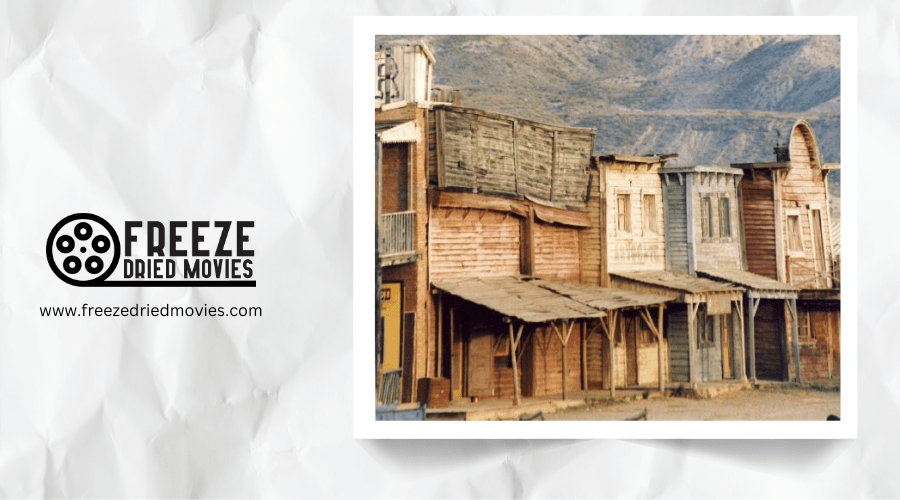Spaghetti Western-Comedy Hybrids: When Humor Meets Gunfights
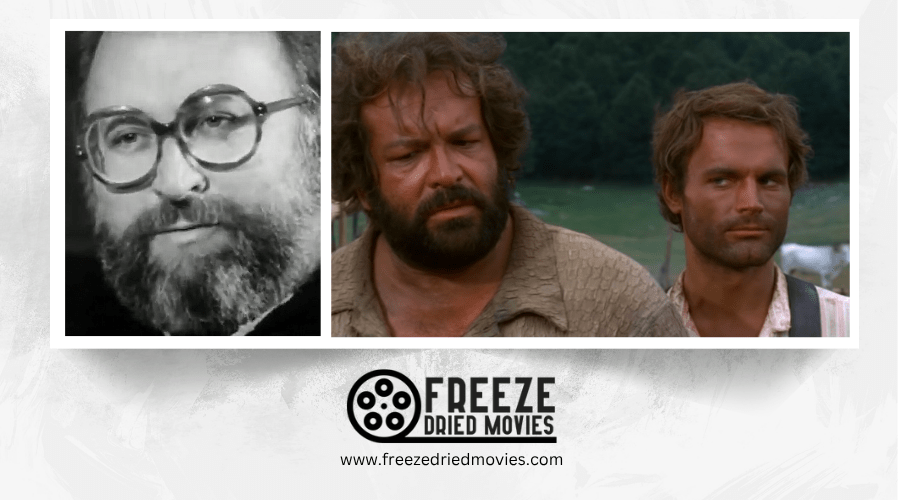
You've probably seen the iconic standoffs and squinting gunslingers of classic Spaghetti Westerns, but have you encountered their comedic counterparts? In the 1970s, the dusty landscapes of these Italian-made Westerns transformed into playgrounds for slapstick humor and satirical takes on the genre's most sacred tropes. These hybrids replaced bloody shootouts with bean-eating contests and exaggerated fistfights. Even Sergio Leone couldn't resist joining the fun with his meta-commentary "My Name is Nobody." But why did the genre take this unexpected turn?
The Birth of the Comedic Frontier: From Leone to Laughs
While Sergio Leone's Dollars Trilogy had established the gritty template for Spaghetti Westerns, the early 1970s witnessed a remarkable tonal shift that would forever alter the landscape of the genre.
You'll find the turning point in 1970's "They Call Me Trinity," where Terence Hill and Bud Spencer traded intense gunfights for carefully choreographed slapstick. This pioneering film signaled the genre's evolution from blood-soaked drama to tongue-in-cheek comedy.
Directors like Barboni and Carnimeo enthusiastically embraced this transformation, delivering exaggerated humor that deliberately undermined traditional Western conventions. Leone himself responded with "My Name is Nobody," a meta-commentary on what he viewed as the genre's comedic corruption.
Ironically, the success of these Comedy Spaghetti Westerns ultimately hastened the genre's decline. Like the drive-in theaters of the 1960s that offered teenagers both freedom and affordable entertainment, these comedic westerns provided audiences a new way to experience the once-serious genre.
Trinity Takes the Reins: How They Call Me Trinity Changed the Genre
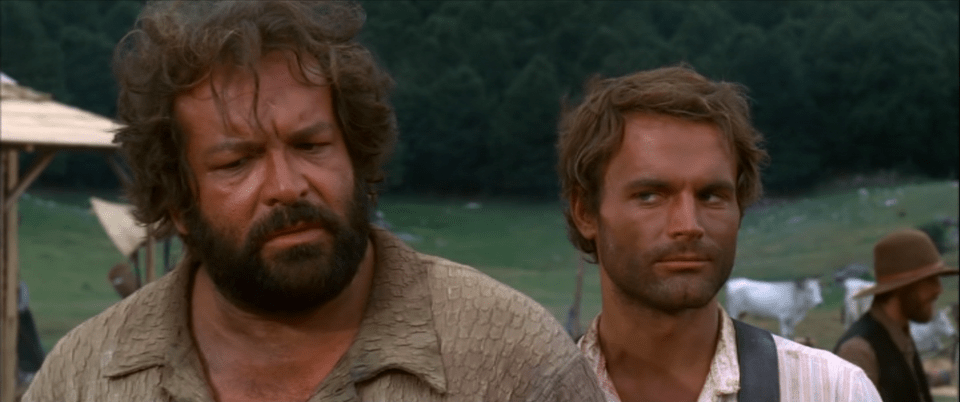
How exactly did a single film transform an entire genre's DNA? When Enzo Barboni released "They Call Me Trinity" in 1970, he effectively rewrote the Spaghetti Western playbook. The film introduced audiences to Trinity and Bambino, two characters who traded the genre's typical grim violence for laugh-out-loud comedy and exaggerated fight scenes.
This pivotal shift reminds us how quickly cinematic evolution can occur. The Comedy Spaghetti Western subgenre exploded from this single film, with Hill and Spencer becoming the definitive comedic duo of the era. Their slapstick approach challenged the machismo that had dominated earlier Westerns, proving so successful that even Sergio Leone responded with "My Name is Nobody" - a filmmaker's acknowledgment that the genre had irrevocably changed.
Unlike the anti-hero cowboy protagonists of the 1960s who blurred the lines between right and wrong, Trinity and Bambino offered a refreshing departure from the moral ambiguity that had come to define Western films of the era.
Beans and Bullets: Signature Elements of Western Comedies
The Trinity films didn't just change the Spaghetti Western landscape—they established a new visual language of comedy that would define the subgenre for decades. When you watch Hill and Bud Spencer trading exaggerated "gun slaps" in Call Me Trinity, you're witnessing the perfect marriage of gunfights and gags.
You'll notice how these films deliberately subvert expectations, replacing stoic gunslingers with heroes more interested in beans than bullets. Instead of dramatic standoffs, you get spectacular slapstick falls and comically inept showdowns. Life Is Tough, Eh Providence exemplifies this approach with its lazy protagonist who'd rather avoid conflict than seek it.
The jaunty, playful soundtracks further distinguish these comedic westerns from their serious counterparts, prompting laughter where there might otherwise be tension. Much like how sound effects integration revolutionized horror films of the 1930s by intensifying suspense, these westerns use audio cues and music to flip traditional tension into humorous moments.
Slapping Leather: the Shift From Gunfights to Fistfights
Three key transformations marked the evolution from serious Spaghetti Westerns to their comedic counterparts, but none was more visually distinctive than the replacement of dramatic shootouts with elaborately choreographed fistfights.
You'll notice that 1970s comedy Spaghetti Westerns prioritized physical humor over gunplay. The iconic "gun slap" routine became a signature move, where characters comically batted away each other's weapons instead of firing them. Stars like Terence Hill and Bud Spencer built their reputations on these over-the-top brawls in films such as "They Call Me Trinity."
This shift fundamentally changed what defined a hero in these films. Prowess was no longer measured by quick-draw skills but by comedic hand-to-hand combat abilities, turning slapstick into the central entertainment value rather than tension-filled standoffs.
Nobody's Watching: Sergio Leone's Satirical Response
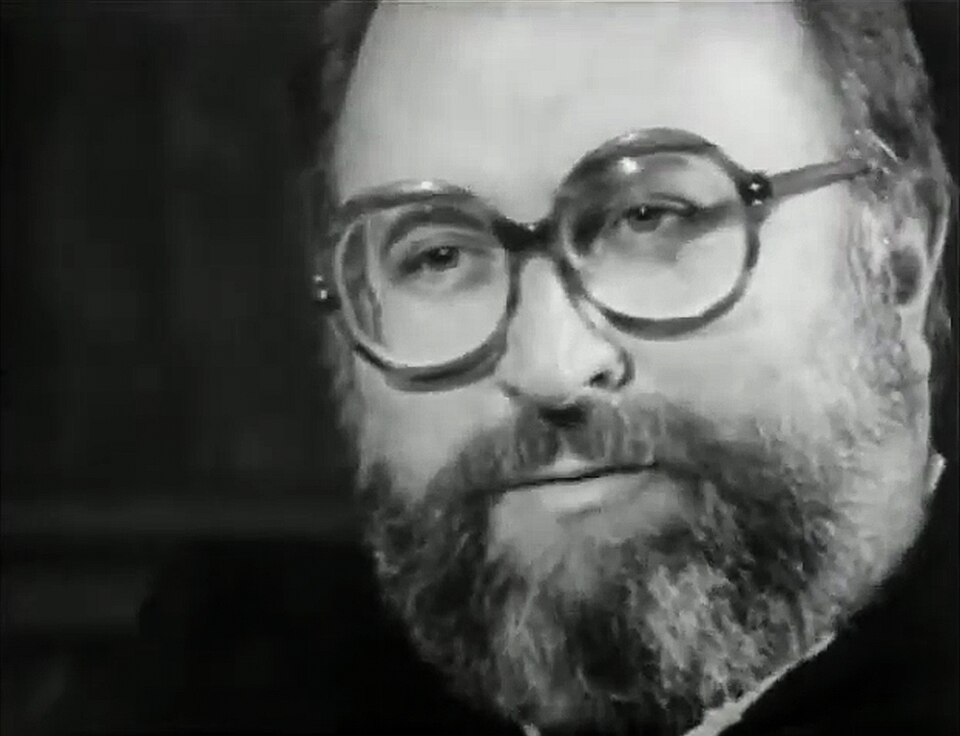
Few reactions to comedy-infused Spaghetti Westerns were as pointed as Sergio Leone's "My Name is Nobody," a masterfully crafted satire that served as both homage and critique of the genre he helped create.
You'll notice Leone's frustration with how comedy Spaghetti Westerns were "destroying the genre" manifested in a film that deliberately killed the western by having its aging hero decimate an entire gang. This defied the comedic tropes that had become prevalent in the early 1970s.
What makes "My Name is Nobody" exceptional is how it seamlessly blends seriousness with silliness while referencing countless other westerns. Leone's later decision to produce "Genius" as a sequel contradicted his original intent, suggesting even the master himself couldn't truly put the genre to rest.
Poking Fun at the Man With No Name: Character Parodies
While Sergio Leone crafted his satirical response to the changing genre, a wave of filmmakers directly targeted the stoic archetype that had defined Spaghetti Westerns.
Trinity reimagined Eastwood's character as lazy yet lightning-fast with a pistol, undercutting the serious gunslinger image. Hallelujah went further with ridiculous one-liners like "Heads I shoot you, tails you're dead!" - a direct mockery of the taciturn hero's mystique.
Even aging gunslingers got in on the joke. Beauregard in "My Name is Nobody" quips about playing harps in heaven while his opponents read tombstones. Meanwhile, inept characters like Sartana offered comedic contrast to skilled Western protagonists. Films like "Those Dirty Dogs" completed the transformation by incorporating slapstick and kung-fu sound effects, firmly establishing comedy as Spaghetti Westerns' new frontier.
Beyond the Trinity: Lesser-Known Comic Westerns Worth Watching
The Trinity films may have dominated the comic western landscape, but they're merely the tip of the sun-bleached iceberg. You'll find unexpected treasures in films like "For a Few Dollars Less" (1966), which delivers genuine quality despite parodying Leone's style with modest means.
Don't miss "They Call Me Hallelujah," featuring intricate subplots involving Russian nobles and fake nuns, all while serving up clever political commentary. Tomas Milian's performance as bounty hunter Provvidenza in "Life Is Tough, Eh Providence?" stands out with its laugh-out-loud moments enhanced by Franco Micalizzi's playful score.
Even "Those Dirty Dogs" offers kung-fu-inspired sound effects in its slapstick fights, while "Trusting Is Good Shooting Is Better" channels Looney Tunes energy through BirrAlfina's distinctive visual style.
The Art of the One-Liner: Memorable Quotes From Western Comedies
An iconic one-liner can define a character as effectively as a well-timed gunshot in the spaghetti western universe. These comedy-infused films elevated the art of the quip to new heights, often using humor to subvert genre expectations.
You'll find gems like Terence Hill's deadpan delivery in "They Call Me Trinity": "Heads I shoot you, tails you're dead!" Or Sartana's cheeky afterlife reference: "You'll be down on Earth reading them while I'm up there playing on a harp."
"My Name is Nobody" brilliantly parodies Leone's stoic heroes with sarcastic retorts, while "Trusting Is Good Shooting Is Better" features Looney Tunes-style villains delivering absurd banter amid otherwise serious settings. Even "For a Few Dollars Less" opens with Eastwood-esque one-liners designed to provoke genuine laughter.
Last Laughs: How Comedy Prolonged and Transformed the Spaghetti Western
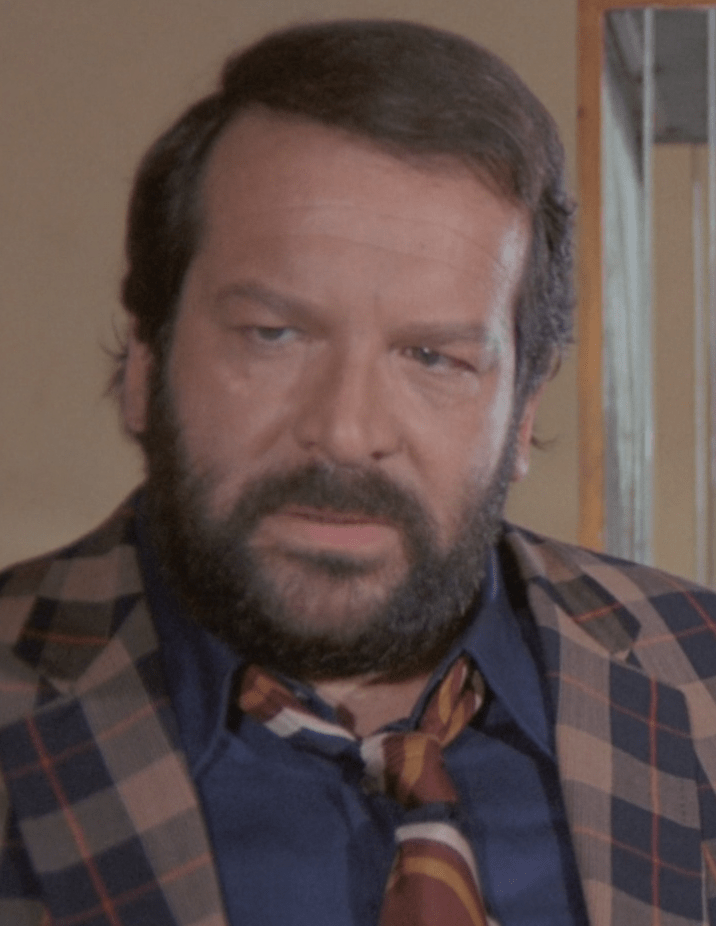
Just when the traditional Spaghetti Western seemed destined for the cinematic graveyard, comedy rode in to save the day.
In the early 1970s, films like "They Call Me Trinity" starring Terence Hill and Bud Spencer injected much-needed humor into a genre growing stale with serious machismo.
These Spaghetti comedies didn't just parody their predecessors—they transformed them. By embracing slapstick, exaggerated action, and playful excess, they breathed new life into a fading format. Critics were divided: some saw these films as killing what made the genre really special, while others appreciated their invigorating approach.
The gamble paid off. The Trinity series made a lot of money and inspired countless imitators. Even Sergio Leone joined the trend with "My Name is Nobody," creating a self-aware send-up that both celebrated and eulogized the Western.



